Trump speaks with Afghan leader, US commander calls for more troops
He also spoke of security in Afghanistan in terms of the often-difficult US relationship with Pakistan
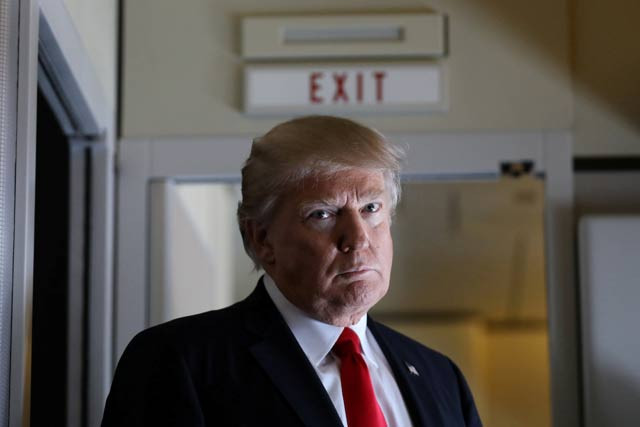
US President Donald Trump.
PHOTO: REUTERS
US strike kills 18, including Afghan civilians
It said Trump also emphasized the continuing importance of the US-Afghanistan Strategic Partnership and his support for Ghani's government, which is faced with an emboldened Taliban-led insurgency that is still gaining ground after more than 15 years of war.
The Afghan Embassy in Washington said Trump and Ghani had spoken on December 3, but Thursday's call was their first since Trump's inauguration on Jan. 20. Hours before the call, General John Nicholson, the commander of US and international troops in Afghanistan, told the Senate Armed Services Committee in Washington he did not have enough troops to adequately advise Afghan forces on the ground. Nicholson said he had enough US troops to carry out counterterrorism operations against the Taliban, al Qaeda and other insurgents but also acknowledged gains made by the Taliban over the past year. "We have a shortfall of a few thousand," Nicholson said.
US eyeing prolonged Afghan conflict: officials
Trump has so far offered little clarity about whether he might approve more forces for Afghanistan. About 8,400 US troops remain in Afghanistan, well down from their peak of about 100,000 in 2011. Nicholson said extra forces need not all come from the United States and could also be drawn from other allies.
The focus of the NATO-led mission in Afghanistan has narrowed considerably to training Afghan forces and conducting counterterrorism missions since a significant drawdown began under Democratic former US President Barack Obama. Obama was often criticized by Republicans in Congress for focusing too much on driving down US troop numbers in an attempt to force Afghan soldiers to become more self-sufficient. Nicholson said US Defense Secretary Jim Mattis would speak with allies soon and suggested Mattis might also visit Afghanistan, which might help him prepare his own recommendations for Republican Trump.
More troops may be needed in Afghanistan post-2016: US commander
He also spoke of security in Afghanistan in terms of the often-difficult US relationship with Pakistan, long seen as a haven for insurgents from the Taliban, the Haqqani network and other militant groups. "Our complex relationship with Pakistan is best assessed through a holistic review," Nicholson said. Addressing US concerns about Pakistan was at the top of his list of priorities with the Trump administration, he said.
The Afghan Embassy in Washington said Trump and Ghani had also discussed regional security issues, "as well as the joint fight against terrorism and countries that sponsor it." It also said Trump said he planned to meet Ghani soon.



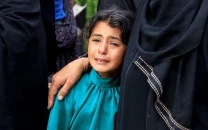
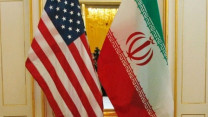
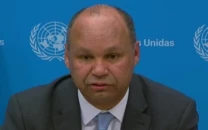
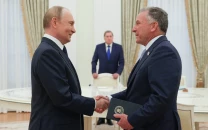












COMMENTS
Comments are moderated and generally will be posted if they are on-topic and not abusive.
For more information, please see our Comments FAQ